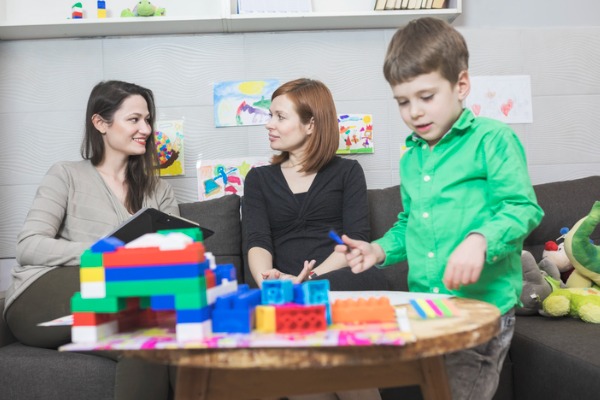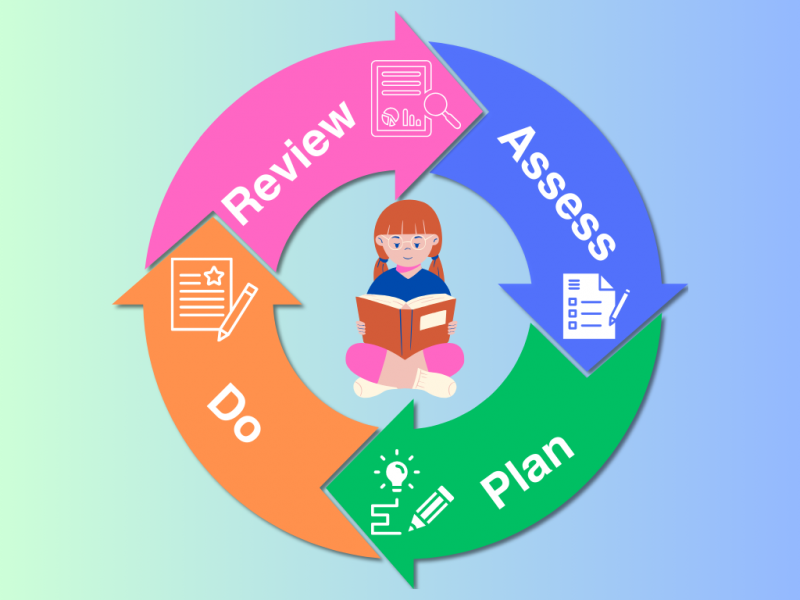Gareth Morewood emphasises the enduring importance of true co-production and collaboration with families to improve outcomes for pupils with SEND. He explores how to actively engage families and young people, working in concert to identify challenges to secure better outcomes.

When it comes to SEND provision in schools, I have always been very clear that working in partnership with families is the most powerful way to improve outcomes for young people. Historically, I wrote a lot about the importance of true co-production, not simply saying we were doing this, but actively engaging with young people, parents/carers and others to jointly identify challenges and ensure truly collaborative solutions. This is still the case in my view and especially so after significant external challenges and family pressures due to the upheaval of the last few years.
It is something I have written about extensively in previous blogs:
Why is co-production so powerful? Learning from research
‘An integrated family approach, encompassing education, health and other services, is most effective in preparing children for adulthood.’
What is co-production? Moving from theory into practice
‘Co-production requires a relocation of power into the hands of families and young people.’
Working together to improve outcomes for our most vulnerable young people
‘We need to manage our own stress to prevent this from affecting those who are unable to differentiate.’
Almost a decade ago, I wrote about ensuring that parent/carer engagement was a high priority. Upon reflection, many of those ideas and that thinking remain relevant today.
The work I developed with colleagues at the University of Manchester and parents/carers at the school where I was SENCo focused on co-production, collaboration and working together. Indeed, alongside Debby Elley, who is the parent of autistic twins, we recently wrote a book about just that: Championing Your Autistic Teen at Secondary School.
‘If you were the boss managing a team, and you only ever spoke to them when there was something to criticise, the chances are you’d not have a very motivated team. The same psychology works here…
‘Tell them what they did right and why! There’s nothing in the word ‘no’ that tells a school or family what they could be doing instead.’
Championing Your Autistic Teen at Secondary School (Elley and Morewood, 2022)
Debby and I often discuss the importance of being solution-focused and positive and of having regular small catch-ups. (Debby always comments, ‘Please don’t call them ‘meetings’; it will put people right off!’) These needn’t be time-consuming.
From my professional perspective, it has always been so important to really listen to families and young people and learn from their lived experiences. A good example of why this is important is outlined below by Debby and I think, highlights a real dedication to improving the educational experience of young people.
Debby recounted: ‘Gareth used to supply me with a cup of tea 15 minutes before the end of the school day every few weeks. This allowed us to nip problems in the bud and also highlight what was going right. Incidentally, it’s far more helpful to congratulate the school on what they did right and focus on repeating good practice, rather than picking up the pieces when things go wrong.
‘Regular exchanges should also include small courtesies that can make all the difference. If your child is angry or upset when you drop them off at the school gates, it’s a good idea to let school know. Self-regulation may be a struggle as stress accumulates.
‘Parents sometimes forget to tell teachers about their child’s ‘pivotal comforts’ as I call them. Often autistic kids use the positive associations of comfort items to block out negative thoughts or environmental stressors. Sometimes this is something as simple as a fidget toy, or it might be photographs to stare at, or in my son’s case it was a plush toy Pikachu. In our book, Gareth and myself addressed these comforts in their own chapter. Teachers may see them as optional distractions, but in fact, they are self-regulators. More often than not, they provide the child with a coping mechanism, and removing them can cause both a loss of focus and distress.
‘We advise parents to tell teachers about these ‘pivotal comforts’ right at the start of their child’s secondary school career and stress their importance when it comes to self-regulation.’
In essence, Debby and I stress the importance of proactive collaboration and honesty. A willingness to be flexible and reflect openly on practice are key areas to improved relationships, leading to better outcomes for students.
There are many ways that colleagues can address these important points, one of which I outlined in another previous blog post – My three-stage plan for school improvement.
Follow these steps to analyse parent/carer confidence and improve co-production.

Use the parent/carer confidence measure for all pupils with statements/EHCPs and at school support stage. Using these results, develop an action plan to address parent/carer concerns and support fuller confidence in provision. You could also download and adapt the SEND questionnaire developed by Natalie Packer.
Whatever you decide is best for your setting, your community and your families, it is important to ensure proper co-production is part of the approach. Not just saying, but actually doing. Hopefully, the various questionnaires, confidence measure and further links can help you to develop something that allows you to work with families and improve the outcomes for all.
All staff need to be aware of practical techniques for overcoming barriers to learning and supporting these pupils to make progress.
This course provides practical training on supporting pupils with specific needs in the mainstream classroom.